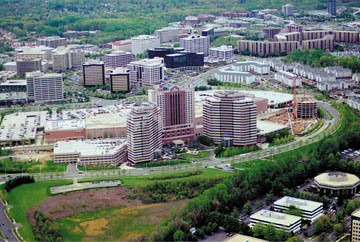The benevolent vision of the Growth Machine
I am a fervent proponent of the Growth Machine thesis, first laid out by sociologist Harvey Molotch, in the seminal article, City as a Growth Machine: Toward a Political Economy of Place. From the abstract:
A city and, more generally, any locality, is conceived as the areal expression of the interests of some land-based elite. Such an elite is seen to profit through the increasing intensification of the land use of the area in which its members hold a common interest. An elite competes with other land-based elites in an effort to have growth-inducing resources invested within its own area as opposed to that of another. Governmental authority, at the local and nonlocal levels, is utilized to assist in achieving this growth at the expense of competing localities. Conditions of community life are largely a consequence of the social, economic, and political forces embodied in this growth machine.
Political scientist Clarence Stone, a professor at University of Maryland has a competing thesis, that of the "urban regime." I don't think these theories are competing so much as different sides of the same coin. "Growth Machine" theory explains the motivation of "the land-based elite," and "urban regime" theory explains in detail how the land-based elite operates and functions.
In the paper, "Now What? The continuing evolution of Urban Regime analysis," Stone writes:
An urban regime can be preliminarily defined as the informal arrangements through which a locality is governed (Stone 1989). Because governance is about sustained efforts, it is important to think in agenda terms rather than about stand-alone issues. By agenda I mean the set of challenges which policy makers accord priority. A concern with agendas takes us away from focusing on short-term controversies and instead directs attention to continuing efforts and the level of weight they carry in the political life of a community. Rather than treating issues as if they are disconnected, a governance perspective calls for considering how any given issue fits into a flow of decisions and actions. This approach enlarges the scope of what is being analyzed, looking at the forest not a particular tree here or there. (emphasis added, in this paragraph and below)
In discussing Atlanta, Stone writes: "Land use, transportation, and housing formed an interrelated agenda that the city's major economic interests were keen to advance;" and
By looking closely at the policy role of business leaders and how their position in the civic structure of a community enabled that role, he identified connections between Atlanta's governing coalition and the resources it brought to bear, and on to the scheme of cooperation that made this informal system work. In his own way, Hunter had identified the key elements in an urban regime – governing coalition, agenda, resources, and mode of cooperation. These elements could be brought into the next debate about analyzing local politics, a debate about structural determinism.
Closer to home ...
Washington Post columnist Steven Pearlstein calls for the Growth Machine, in other words, business interests, to up their game and re-focus on a regional agenda with less inter-jurisdictional competition and squabbling between DC, Maryland, and Virginia. See " A call of action to Washington's business elite."
Labels: electoral politics and influence, Growth Machine, real estate development




1 Comments:
Thank you for providing such a valuable information and thanks for sharing this matter.to get Online pharmacy from Dose Pharmacy medicine.
Post a Comment
<< Home